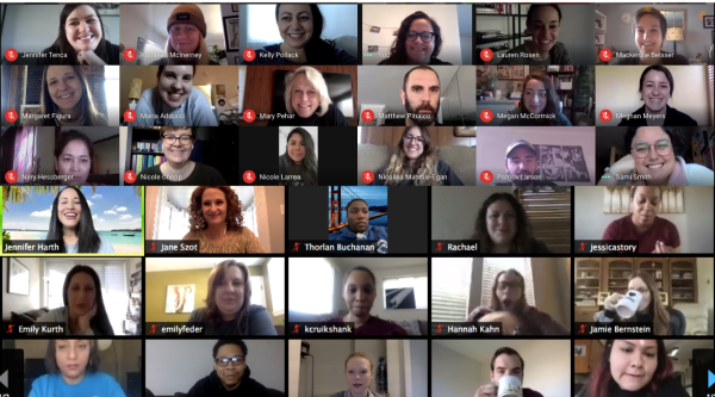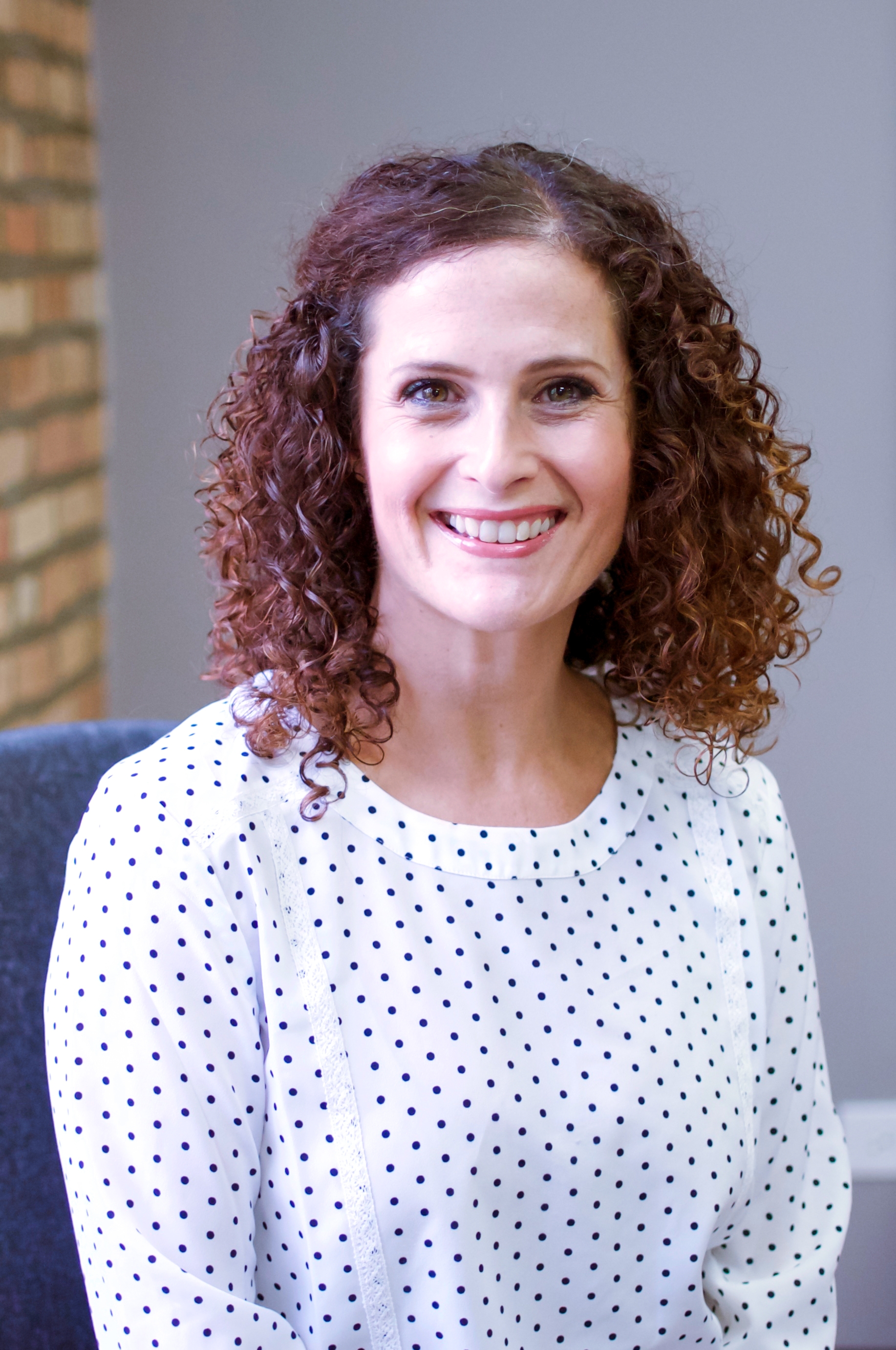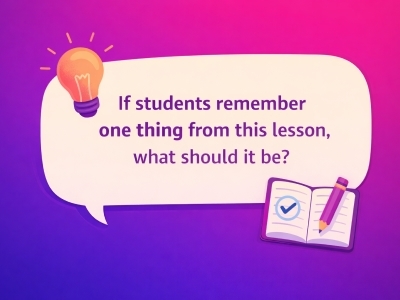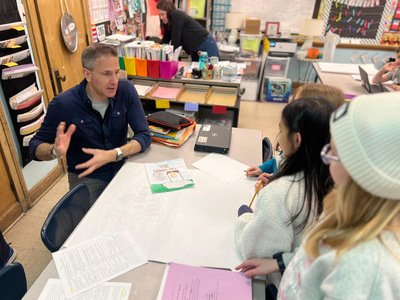Learning at Home Starts with Human Connection
Topics

We’ve all had the experience of truly purposeful, authentic learning and know how valuable it is. Educators are taking the best of what we know about learning, student support, effective instruction, and interpersonal skill-building to completely reimagine schools so that students experience that kind of purposeful learning all day, every day.
Three ways Distinctive Schools teachers and students remain deeply connected to each other during the COVID-19 pandemic.
As COVID-19 continues to impact every facet of our daily lives, schools continue to design and redefine a new and different “normal.” Educators are creating systems to ensure that all students have equitable access to technology, navigating the benefits and pitfalls of a virtual learning environment, and more.
As an organization whose model is grounded in social-emotional learning (SEL) as a defining factor of a successful learning experience, Distinctive Schools has found itself uniquely prepared for this unexpected transition. While teachers and students in our charter network of eight schools in Chicago and Detroit are not meeting in a physical classroom, they remain deeply connected. In my conversations with several Distinctive educators, I discovered three key themes that have made this connection possible.
Build Self-Care into the Model
Distinctive Schools (DS) has a strong culture of optimism and care, which has been key to navigating the pandemic. Mike McCarthy, the executive director of student services, notes that the unwavering focus on social-emotional learning (SEL) has allowed people in key roles to shift their support:
“People like the school nurse, social worker, and SEL instructional coaches are just as busy as ever,” says Mr. McCarthy. “They are still attending to and checking in with the students they normally see, but have also stretched their support to include meeting teachers’ needs. There has never been an attitude of, ‘That’s not my role.’ In fact, the reaction has been one of people wanting to do more and to help in any way they can.”
DS schools keep self-care a priority in various ways:
- Reducing the teachers’ instructional hours from eight hours to five hours
- Providing three hours of teacher collaboration and planning each week
- Hosting and facilitating daily principal huddles to provide a platform for collaboration and mutual support
- Creating a Staff Spring Break Bingo Board focused on self-care and wellness
- Streamlining communication to only include the most essential information in a centralized location
School principals are finding new ways to reinforce the importance of SEL. As the length of the “stay at home” order increased, Jennifer Harth, school principal at CICS Prairie, realized that she needed to address the potential for staff burnout. Her check-ins with staff revealed three priorities: 1) attending to self-care; 2) balancing student support with personal needs and circumstances; and 3) navigating a new work environment at home. In order to address the importance of self-care, Ms. Harth and her leadership team instituted a few important policies:
- They required all staff members to add 60 minutes of self-care to their daily teaching schedule. Harth points out that using the phrase “self-care” was intentional. “We didn’t call it ‘lunch’ or ‘prep’ or any other phrase associated with the typical school day. These are not typical times, so the need to prioritize self-care is more important than ever. We want the daily schedule to remind staff that they need to make time for themselves.” The 60 minutes of self-care is for every staff member, not just teachers. “Equity is the driving force of all of the work that we do,” says Ms. Harth. “Every staff member contributes to making CICS Prairie a supportive and welcoming community. We are all in this together.”
- They designed communication norms to protect scheduled self-care time. The CICS Prairie leadership team refrains from reaching out to teachers during this time. In addition, the entire staff has committed to limiting communication to occur during school hours. As Ms. Harth explains, “We showed everyone how to use the ‘Schedule Send’ feature in Gmail. That way, if staff is inclined to work outside of our online school day, they may, but in a way that does not interrupt their colleagues’ personal time. I continue to communicate that our leadership team and I are committed to sending communication within these hours because self-care is imperative while we work from home. If we don’t model our expectations, teachers will feel tied to their screens. We need to give them permission to and even require them to ‘unplug.’”
Kimeon Cruikshank, kindergarten teacher at CICS Prairie, continues to focus on SEL with her students. During the daily Morning Meeting, her students share how they are feeling and what is happening in their lives, just as they always have. The meeting reinforces the strong sense of community and is a positive start to the day. “Each day we have about 23-25 students attend Morning Meeting. I believe this high level of participation is due to the support of other staff members partnering with me to reach out to families each morning and encouraging them to join.” Ms. Cruikshank knows that these unusual circumstances are an added source of stress for families and hopes that providing an outlet for them to share their concerns is helpful.
Walk the Talk
Another theme that emerged is that prioritizing SEL starts at the top. Mr. McCarthy notes, “At Distinctive Schools, SEL is never in opposition to academics. It is not an either-or scenario. Even as we figure out our way through and define at-home learning, we remain focused on engagement and well-being as opposed to compliance.”
Colleen Collins, school principal at CICS West Belden, notes that, “As the leaders, If you only talk about self-care but you don’t actually do it, it won’t translate into the teachers’ way of being.”
During her staff meetings, Ms. Collins shares her own plan for self-care that day and asks that staff remember to prioritize this time as well. In addition, she has asked Maria Adducci, the school social worker to share self-care “tips and tricks.” Initially, Ms. Adducci provided a new tip each day; however, as the “stay at home” mandate has lengthened, she has transitioned to providing a weekly theme.
The most recent theme has been “‘Forgive yourself.” Ms. Adducci notes that, when reflecting on the theme, “We invite staff to speak and share. It has been really moving. And when Colleen shares, she models that you need to take care of yourself. I’m not an expert at being in a pandemic. No one is. These conversations allow everyone to share to the degree that they feel comfortable and helps convey the message that we are all trying and just doing the best we can.”
Create Consistency
The final theme that emerged is the need for consistency. As a network, Distinctive Schools has maintained consistent routines by shifting standing meetings from in-person to virtual. School principals continue to meet weekly, assistant directors met for their quarterly roundtable as usual, and the network’s Operations, Academic, Strategy, and Finance teams continue to collaborate on a regular basis.
In addition, the network has shifted the weekly instructional schedule to ensure that teachers continue to have time to co-plan. Prior to COVID-19, staff had time each Wednesday afternoon. Now, all teachers across the eight schools have three hours of co-planning every Friday. This shift maintains the planning structure, honors the complexities of teacher preparation and planning, and gives every teacher the time they need to prepare for the coming week.
School principals also strive to provide consistent structures and clear communication. Ms. Harth continues to send her Prairie Weekly Flyer to staff, but notes that the content now emphasizes staff celebrations and moments of inspiration. In addition, the daily “huddle” provides the opportunity for staff to begin the day as a community and to check-in with one another. Recently, Ms. Harth recorded a video message to families, in which she expressed appreciation for all that they are doing to support their child’s at-home learning experience and to invite them to a virtual “Coffee with the Director” to discuss their concerns and questions.
Ms. Collins also sends a weekly memo and hosts a daily staff huddle each morning. “We settle into our day with humor and connection,” says Collins. “Staff has seen and experienced that they have permission to focus on how they feel. This approach has translated to their classrooms.”
Carrie Goodrich, kindergarten teacher and mentor teacher at CICS West Belden, agrees. “I make it a point to check in with each family on a daily basis, where my focus is less on ’What work are you completing?’ and more on, ’How are you feeling, and how can I support your overall well-being?’ It is very important to me that this pandemic does not become a traumatic memory for our students and families, but a time where they learned how important it is to love, support, and be kind to one another.”
Schools across the country, including Distinctive Schools, will continue to find their way through the pandemic. While much remains uncertain, the commitment to one another and to our well-being remains essential to the work. Just as Ms. Goodrich does with her students, we all need someone to remind us that love and kindness come first. This message is one that educators carry every day, now and into the future.
Message to CICS Prairie families from the principal, Jennifer Harth.
Ms. Collins also sends a weekly memo and hosts a daily staff huddle each morning. “We settle into our day with humor and connection,” says Collins. “Staff has seen and experienced that they have permission to focus on how they feel. This approach has translated to their classrooms.”
Carrie Goodrich, kindergarten teacher and mentor teacher at CICS West Belden, agrees. “I make it a point to check in with each family on a daily basis, where my focus is less on ’What work are you completing?’ and more on, ’How are you feeling, and how can I support your overall well-being?’ It is very important to me that this pandemic does not become a traumatic memory for our students and families, but a time where they learned how important it is to love, support, and be kind to one another.”
Schools across the country, including Distinctive Schools, will continue to find their way through the pandemic. While much remains uncertain, the commitment to one another and to our well-being remains essential to the work. Just as Ms. Goodrich does with her students, we all need someone to remind us that love and kindness come first. This message is one that educators carry every day, now and into the future.
Image at top courtesy of Distinctive Schools.




